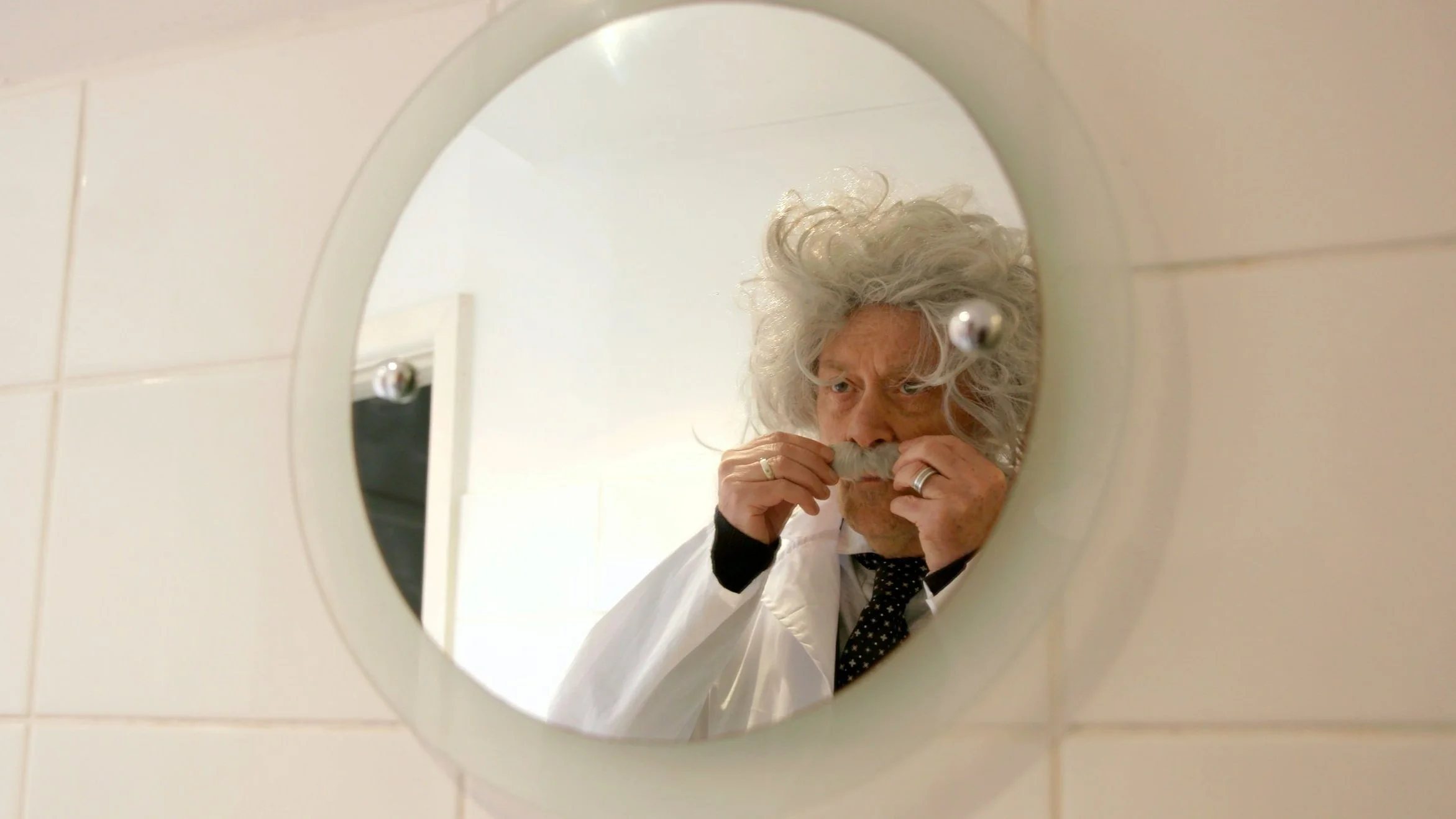Red Herring
The English filmmaker Kit Vincent explores his own terminal illness in his brave, intimate and remarkable documentary.
By chance this documentary feature receives its UK release in the same week as Much Ado About Dying, a film that was made by Simon Chambers about his own uncle in the four years leading up to his death. That struck one as being such a personal venture that its very character made it stand out. Nevertheless, Red Herring (a rather odd choice of title) can validly be regarded as even more extraordinary in that it finds Kit Vincent making a film about his own impending death and about the impact on his family when he received a diagnosis of a brain tumour that was terminal. Shocking in any circumstances, it was all the more so for Kit Vincent to learn that his life expectancy was likely to be between four and eight years because he was only 24 years old at the time.
Prior to that although Kit Vincent had established himself as a freelance filmmaker he had not made a feature-length work. However, on becoming aware of his own limited future he determined to record his situation and that grew into Red Herring which has already won an award as Best UK feature at the 2023 Raindance Film Festival. With Kit himself adding a commentary, the film includes his acknowledgment that the focus of it changed somewhat over time. Initially he looked on what his father, Lawrence, was experiencing as a prime concern of the film, but he would eventually decide that his own emotions and responses had to be addressed. He talks of his difficulty in doing this, in opening up and saying out loud the extent to which he was feeling scared and so very alone regardless of the presence of his family.
This is brave and emotional stuff. Nevertheless, Vincent says that he didn't want this to be a sad film and there are indeed humorous touches now and again. But, more importantly, nothing is softened up and his account is commendably honest and unsentimental. All of that is to the credit of the film, but if judged as a work for general audiences it is less adept than one would have hoped. Vincent’s parents separated when he was only seven years old but in bringing his mother, Julie, into the film he seems to recognise that the family history is important and that his diagnosis is a reason for reconsidering his rather distant relationship with his mother for which he has been holding her responsible. But, while his childhood days are evoked through photographs and old film, the family details tend to emerge in a haphazard way. It is typical that seaside footage leaves the location virtually unidentified, that despite a reference to there being three children in all a sister named Di only just emerges and the third one appears to go unmentioned. In giving us a portrait of Lawrence, there’s much about his atheist father’s interest in Jewish philosophy but it takes longer to learn that he is a former college principal. It takes more time still to discover that Julie is a district nurse but even more remarkably we are well into the film’s second half before Kit’s partner, Isobel, comes to the fore. As for the past, Kit talks of having been a difficult teenager but we get no details and the film’s piecemeal approach means that the family portrait emerges in bits and pieces when to have handled it in a more ordered way would have helped to draw one in further and would have made for a much smoother film. That said, as the months pass and Kit and the family wait anxiously for the doctor’s reports on further scans Red Herring does follow through so as to offer a shared experience.
Jewish audiences will appreciate what almost becomes a subsidy theme here, Lawrence’s conversion to Judaism, but the most affecting scenes come late on. Sometimes that is through a meaningful detail (as when Lawrence talks of a modest present he received but which he treasured because it came from Kit at the age of seven). Furthermore, it is at this stage that Kit talks about the aim behind his film describing it as something to give his family which will then be there when he is not, something to remember him by. That captures the true value of this film in a nutshell even if it also suggests that it will mean more to those close to Kit than it will to a cinema audience. There is, too, a determination to find a positive note as we leave him four years on from that diagnosis. He looks to the idea that for his family there will be a new beginning after his death and, in what comes close to an echo of the ending of the James Joyce novel Ulysses, he ends by looking at life affirmatively: "Oh yes! Oh yes! ".
MANSEL STIMPSON
Featuring Kit Vincent, Lawrence, Julie, Isobel and Di.
Dir Kit Vincent, Pro Edward Owles, Ph Rik Burnell, Kit Vincent and others, Ed Hattie Brooks and David Higgs, Music Xav Clarke.
Good Kid Films/Bright West Entertainment/Postcode Films-Bulldog Film Distribution.
94 mins. UK. 2023. UK Rel: 3 May 2024. No Cert.


